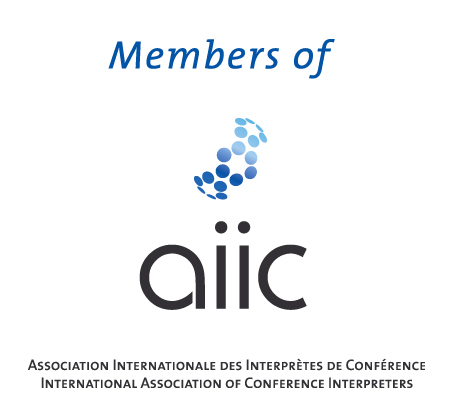Tips on helping interpreters prepare for your meeting
by Luigi Luccarelli
Preparation is the invisible work that contributes to the success of meetings large and small ? and one of the main reasons why interpreters are so often heard but not really noticed.
Preparation is essential?whether working face-to-face with people in a hospital or immigration office, or in a booth at the back of a meeting room. But before taking a look at the why and how of preparation, let?s get a couple of things clear.
First, translation of any kind is not simply about?knowing languages; that?s just a prerequisite for a job that?s all about conveying what a speaker says. Within this communication process, a language is no more than a raw material waiting to be formed into a finished product ? the message. And to perform the task successfully, interpreters must have a complete grasp of subject matter and the context they are working in.
From that it follows that translation is not about finding one-for-one word equivalents. To fashion a finished product greater than the sum of its parts, many resources come into play ? knowledge, contextualization, rapid analysis, cohesion, subtlety of expression, correct terminology, etc.
And that brings us back to preparation because it’s the stage during which all these elements are readied. Compare it to the research a biographer does before sitting down to write. Or think of the accomplished speaker you?ve invited who expressly gets ready to address?your group?? that?s part of what has made him successful.
It?s not just about the speeches
If you have hired interpreters in the past, you may have been peppered with requests for?documents?possibly to the point of annoyance. Understandable, but if you are looking for professionals who know how to communicate, beware of those who do not ask or don?t know what to ask for!
Let?s take a look at what?s behind the requests and possibly clear up some common misunderstandings. First, the word?documents?when used by an interpreter refers to much more than material specific to the upcoming meeting. Secondly, there is a broad range of useful documents likely to be within easy reach. Lastly, interpreters really want to be prepared; it?s part of the job description. They know that both general background and specific subject knowledge play a fundamental role in what they do.
What your interpreters can use
So here are a few suggestions on how to satisfy those entreaties fordocuments?and reap the rewards of sound conference preparation.
The agenda?may not seem like much but it?s chock-full of information. It shows how the meeting is organized ? schedule, speeches/presentations, discussion and breakout sessions, etc. Add on?speakers’?r?sum?s?and the list a participants(individuals and organizations) and it?s even better.
Reports or talks from previous meetings?are great. Sure, this year?s conference will be different, but we?re talking about background. Minutes, position papers, even general information about your organization will illustrate what you are all about. Your interpreters will gain insight into areas under discussion, pick up procedural information and learn how your cohort talks.
Any background material?made available to participants, especially information on the purpose of the meeting, should be made available to your language people also. It will help them put things in context and construct mind maps that will inform their work.
Your website?and those of any partner groups will be extremely useful ? and perhaps should have been mentioned first. After all, the website might well be the place all the information mentioned above is available. Paperless is possible ? and interpreters have long gone electronic.
Direct person-to-person contact?is sometime forgotten in our high-tech world but shouldn?t be. Maximize communication by minimizing the distance between your organization and the interpreters. Having a single contact person on each side is advisable.
A?pre-meeting briefing/Q&A session?can be beneficial for both sides, especially if the topic is highly specialized.
And if?speeches or power points?do come in before (or even during) the meeting, by all means make them available. Your interpreters will be able to prepare them in context having studied everything you provided previously.
But isn?t interpreting an impromptu activity??Definitely. And thorough preparation helps interpreters deal with the unexpected, not just during speeches but also throughout discussion and Q&A sessions.
Some of the information mentioned here is confidential??Don?t worry: professionals are bound by?absolute confidentiality?before, during and after an assignment.
To sum up
It?s all about communication. Interpreters get a buzz from putting knowledge gained and reinforced through methodical preparation into use and performing well – which is just another way of saying that they take pride in helping people communicate.













